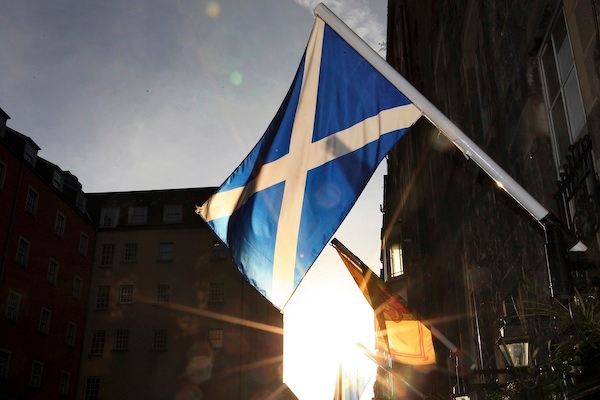It would be all too easy this week to argue that the case for Scottish independence is falling apart. Alex Salmond is an able politician and a peerless mischief-maker, but he tends to fall mute when confronted with the myriad contradictions of his own policies. It happened this week, when George Osborne said that it is ‘unlikely’ that the rest of the UK would enter into a formal currency pact with an independent Scotland. No matter, says Mr Salmond, an independent Scotland would use sterling anyway.
This would be a strange form of independence. It would reduce Scotland to the status of Panama, which uses the US dollar without the approval of the US government. It is not proving a happy arrangement for the Panamanians. As the US Treasury, like the Bank of England, rolls the presses in an attempt to print its way out of economic crisis, it is exporting inflation. Panama is powerless to stop this, because it has no control over its money supply.
This is just one of the many problems. How would an independent Scotland defend itself? It is hard to remain part of a UK military if (like the SNP) you disagree with most interventions. What happens if its major banks go bust? That’s hardly a hypothetical, given that the Bank of Scotland and RBS are both owned by the UK taxpayer. The biggest unanswered question is even simpler: would any of Scotland’s many problems be solved by secession? And since devolution has done little for Scotland in the past few years apart from saddle an ingenious country with perhaps the most witless bunch of politicians in Europe, what possible benefit could accrue from giving them even more power?
Yet for all this, the ‘No’ campaign still has a fight on its hands in the run-up to the referendum planned for 18 September next year. Mr Salmond is a giant amongst pygmies, and his victory in 2011 was one of the most spectacular turnarounds in modern politics. So for all George Osborne’s reasoned arguments this week, the government has little reason to feel confident that it will succeed in preserving the union.
The politics of nationalism is utterly different from the Westminster parlour games in which the Chancellor specialises. It is about language — referring to the devolved administration as a ‘government’, for example. It is about whether Scotland, rather than Britain, should send aid to a disaster-struck country. It is about the SNP campaign being a positive ‘yes’ and unionists a curmudgeonly ‘no’. It is treating David Cameron like a foreign dignitary when he visits northern parts of his own country. It is about attaching faux-diplomatic titles to any accord between Holyrood and Westminster, such as the ‘Edinburgh Agreement’ on the coming referendum.
Osborne has already made concessions on the wording of this referendum. One would imagine that the only sensible way to proceed would be to produce a set of detailed proposals and then ask the people: do you approve, yes or no? Instead, the Scottish people will be asked a question more in keeping with an SNP-commissioned opinion poll: ‘Should Scotland be an independent country?’ As Charles Moore has observed, it is a safe bet that the promised referendum on our membership of the European Union will not be worded in a similar way.
David Cameron has taken great pains to say that the EU referendum will not take place until the details have been thrashed out. Yet he has allowed the SNP to do things quite the other way around: pose the question first and only then consider the details. The idea of post-referendum negotiation is another goal of the Scottish Nationalists, which was achieved without a fight in the so-called Edinburgh Agreement.
However many punches that the ‘No’ campaign manages to land on the ‘Yes’ campaign’s nose, the people of Scotland will next year enter the polling booth to make a choice in which the meaning is in the mind of the beholder. The question that will be put — devised by the Electoral Commission and eagerly agreed to by the SNP administration in Edinburgh — could not have been better designed to maximise the ‘Yes’ vote. Asking people if they think their country should be independent begs them to think that the alternative is dependence.
Scotland is anything but dependent. She is part of one of the most successful unions in world history, and has played a disproportionate role in the United Kingdom’s achievements. Sir Chris Hoy, the cyclist feted by Salmond as a ‘Scolympian’, angrily dismisses the idea that he would have achieved anything like his success without having been able to train in England. The Olympics showed Salmond how few Scots share his small-minded outlook. The successes of Jessica Ennis and Mo Farah were celebrated throughout Scotland as the achievements of fellow countrymen, not foreigners.
Three weeks ago, David Cameron made a speech to defence workers on the Clyde, imploring them to listen, in the Scottish -independence debate, to ‘arguments of the head’, not just of the heart. But Cameron has made his job much harder by ensuring that Scottish voters next year will face a question which invites them to focus on the latter.






Comments